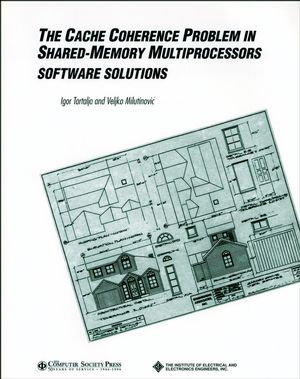The Cache Coherence Problem in Shared-Memory Multiprocessors: Software SolutionsISBN: 978-0-8186-7096-1
Paperback
358 pages
February 1996, Wiley-IEEE Computer Society Press
 |
||||||
Almost all software solutions are developed through academic
research and implemented only in prototype machines leaving the
field of software techniques for maintaining the cache coherence
widely open for future research and development. This book is a
collection of all the representative approaches to software
coherence maintenance including a number of related efforts in the
performance evaluation field.
The book presents a selection of 27 papers dealing with state-of-the-art software solutions for cache coherence maintenance in shared-memory multiprocessors. It begins with a set of four introductory readings that provides a brief overview of the cache coherence problem and introduces software solutions to the problem. The text defines and illustrates static and dynamic software schemes, techniques for modeling performance evaluation mechanisms, and performance evaluation studies.
The book is intended for the experienced reader in computer engineering but possibly a novice in the topic of cache coherence. It also provides an in-depth understanding of the problem as well as a comprehensive overview for multicomputer designers, computer architects, and compiler writers. In addition, it is a software coherence reference handbook for advanced undergraduate and typical graduate students in multiprocessing and multiprogramming areas.
The book presents a selection of 27 papers dealing with state-of-the-art software solutions for cache coherence maintenance in shared-memory multiprocessors. It begins with a set of four introductory readings that provides a brief overview of the cache coherence problem and introduces software solutions to the problem. The text defines and illustrates static and dynamic software schemes, techniques for modeling performance evaluation mechanisms, and performance evaluation studies.
The book is intended for the experienced reader in computer engineering but possibly a novice in the topic of cache coherence. It also provides an in-depth understanding of the problem as well as a comprehensive overview for multicomputer designers, computer architects, and compiler writers. In addition, it is a software coherence reference handbook for advanced undergraduate and typical graduate students in multiprocessing and multiprogramming areas.



